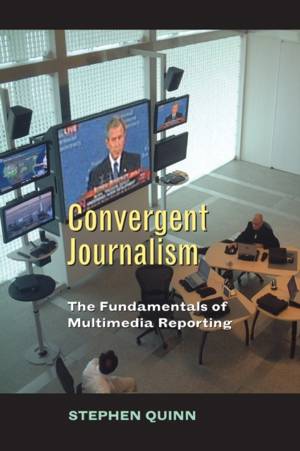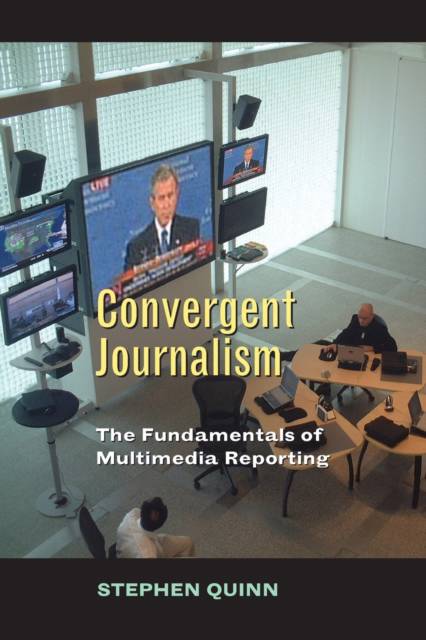
Je cadeautjes zeker op tijd in huis hebben voor de feestdagen? Kom langs in onze winkels en vind het perfecte geschenk!
- Afhalen na 1 uur in een winkel met voorraad
- Gratis thuislevering in België vanaf € 30
- Ruim aanbod met 7 miljoen producten
Je cadeautjes zeker op tijd in huis hebben voor de feestdagen? Kom langs in onze winkels en vind het perfecte geschenk!
- Afhalen na 1 uur in een winkel met voorraad
- Gratis thuislevering in België vanaf € 30
- Ruim aanbod met 7 miljoen producten
Zoeken
€ 71,95
+ 143 punten
Omschrijving
Convergence is happening around the world. It represents a new form of reporting and may well be the future for journalism. Full convergence involves a radical change in approach and mindset among journalists and their managers. It involves a shared assignment desk where the key people, the multimedia assignment editors, assess each news event on its merits and send the most appropriate people to the story. Convergence coverage should thus be driven by the significance of the news event. Depending on variables unique to each country and company, convergence is one of the most likely scenarios for media organizations around the world.
This book explains the phenomenon of media convergence, defines what has been until recently a confusing topic, describes the main business models, provides case studies of successful convergent newsrooms around the world, and explains how to introduce convergence into the newsroom. Stephen Quinn provides a practical introduction to the changing landscape of news reporting, and has written a useful book for students and professionals alike.
This book explains the phenomenon of media convergence, defines what has been until recently a confusing topic, describes the main business models, provides case studies of successful convergent newsrooms around the world, and explains how to introduce convergence into the newsroom. Stephen Quinn provides a practical introduction to the changing landscape of news reporting, and has written a useful book for students and professionals alike.
Specificaties
Betrokkenen
- Auteur(s):
- Uitgeverij:
Inhoud
- Aantal bladzijden:
- 270
- Taal:
- Engels
Eigenschappen
- Productcode (EAN):
- 9780820474526
- Verschijningsdatum:
- 27/10/2005
- Uitvoering:
- Paperback
- Formaat:
- Trade paperback (VS)
- Afmetingen:
- 152 mm x 229 mm
- Gewicht:
- 362 g

Alleen bij Standaard Boekhandel
+ 143 punten op je klantenkaart van Standaard Boekhandel
Beoordelingen
We publiceren alleen reviews die voldoen aan de voorwaarden voor reviews. Bekijk onze voorwaarden voor reviews.









